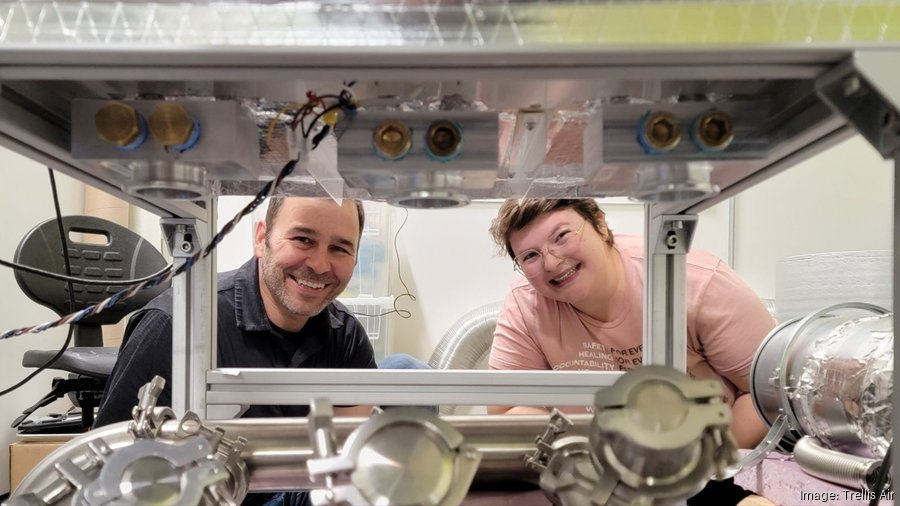The quest for the perfect NCAA bracket captivates millions each March, as fans eagerly fill out their predictions for the annual tournament. With stakes high and the allure of winning office pools, understanding NCAA bracket odds becomes essential for those hoping to achieve that elusive perfect bracket. Statistically, the chances of selecting every winner from a field of 64 teams are extraordinarily slim; in fact, it’s likened to winning the Powerball consecutively. As teams compete, bracket predictions become a blend of intuition and statistical analysis, especially when considering potential NCAA tournament upsets that can derail even the best-laid plans. For anyone wondering how to fill their NCAA bracket successfully, there are strategies to enhance your odds of success, although predicting every game correctly remains a nearly impossible feat.
In the world of college basketball, the challenge of crafting an immaculate tournament bracket has garnered attention and excitement among sports enthusiasts. Many fans engage in filling out their selections, motivated not just by the thrill of competition, but also by the hope of achieving a flawless score in this iconic sporting event. Statisticians frequently highlight the daunting nature of such a feat, emphasizing that the odds of achieving a pristine bracket are astronomically low. With teams fighting for glory and unexpected outcomes frequently occurring, fans get caught up in bracketology, often wondering how they can improve their chances of anticipating upsets and making informed choices. Exploring perfect bracket statistics reveals just how rare this accomplishment is, reinforcing the notion that while every fan dreams of a perfect score, strategic predictions are vital for a successful experience.
Understanding the Odds of a Perfect NCAA Bracket
Statistically speaking, the odds of picking a perfect NCAA bracket are astronomically low, making it one of the toughest puzzles in sports. With each tournament featuring 64 teams and 63 games to predict, the mathematical probability of getting every game correct is estimated at about 1 in 2^63, a quintillion-level number. This staggering figure highlights the unpredictability of the NCAA tournament, which includes potential upsets and surprises that can skew even the best-informed predictions. Such odds infamously compare to winning the lottery twice consecutively, thereby illustrating how exceedingly rare a perfect bracket really is.
As declared by experts, such as statistician Kevin Rader, achieving a perfect NCAA bracket remains an elusive goal, with no reported successful attempts to date. Every year, hopeful fans fill out their brackets, but as the tournament progresses, the realization dawns that the probability of remaining perfect rapidly decreases. With top seeds often favored, and the typical pattern of upsets occurring, the ideal scenario for a perfect bracket hinges on all higher seeds performing at their best — a rarity in itself. For many, the focus shifts from perfection to simply enjoying the tournament and hoping for their chosen teams’ success.
Strategies for Filling Out Your NCAA Bracket
When embarking on the journey to fill your NCAA bracket, understanding the nuances of bracket predictions is vital. Begin by analyzing NCAA bracket odds for each matchup; consider team performance, historical statistics, and expert insights. While it may be tempting to follow your personal biases, incorporating objective data can significantly improve your chances of making educated guesses. It’s essential to strike a balance between selecting favorites and taking strategic risks on potential upsets, especially if you’re competing in larger pools where unique selections can differentiate your bracket from the crowd.
To enhance your chances of success when completing your bracket, consider utilizing resources such as analysis from reputable sports analysts and statistical models that project game outcomes. Look for key trends, like how lower seeds have fared against higher seeds historically and any significant injuries that might impact player performance. The effectiveness of your strategy could hinge on identifying potential upsets, as these surprise outcomes can heavily influence tournament dynamics. Ultimately, while no strategy guarantees a perfect bracket, informed decisions based on thorough research can make your bracket much more competitive.
Anticipating NCAA Tournament Upsets
Upsets are a hallmark of the NCAA tournament, making them a critical consideration when filling out your bracket. Historically, lower-seeded teams have delivered shocking victories over favored opponents, resulting in what fans fondly call ‘Cinderella stories.’ Understanding the psychology and performance metrics of tournament teams can help in predicting these upsets, allowing you to capitalize on teams that are primed to exceed expectations. Factors like momentum going into the tournament, matchups that favor underdogs, and essential player dynamics often play pivotal roles in these unexpected results.
Keeping tabs on NCAA tournament upsets from previous years can provide valuable insights into trends and patterns that emerge during the event. For example, about 15-20% of first-round games often feature lower seeds winning, challenging the traditional views of bracket predictions. This unpredictability feeds into crafting your personal strategy for filling out a bracket. Embrace the chaos by allowing for a few calculated risks; this may not only distinguish your picks but also enrich the excitement of following the tournament as an engaged fan.
The Role of Statistics in NCAA Bracket Predictions
Statistics play a fundamental role in NCAA bracket predictions. They serve as a foundation for understanding team strengths and weaknesses, historical performance, and expected match outcomes. By analyzing factors such as offensive and defensive efficiency, rebounds, and player statistics, you can create a more nuanced picture of each matchup. Utilizing these statistical insights can lead to smarter betting choices and help you determine which teams hold the most potential for advancing in the tournament, especially when considering bracket predictions.
Moreover, successful bracket strategies often rely on synthesizing statistical data with expert analyses and current team news. Statistical models provide probabilities for winning each game, creating a more informed basis for your selections. While meticulous attention to statistics is crucial for accurate predictions, it’s equally important to remember that unexpected events, like injuries or sudden shifts in team dynamics, can alter outcomes. Successful bracket filling thus hinges on a blend of rigorous statistical analysis and real-time monitoring of tournament developments.
Participating in an NCAA Bracket Pool
Joining an NCAA bracket pool is a popular way to engage with the tournament and enhance the excitement of each game. Whether you’re participating with family, friends, or colleagues, these pools often add a competitive edge to the viewing experience. The dynamics of a pool can vary widely; in some cases, sheer numbers may lead you to choose different strategies compared to a solo effort on a perfect NCAA bracket. For instance, to win over a large group, marginally unconventional picks become essential.
In a bracket pool, distinguishing your selections from the bulk requires a blend of strategy and insight. You might choose to lean heavily on favorites initially, followed by selecting a few upsets where the odds look favorable. Keeping an eye on how others are filling their brackets can give you an advantage, whether you decide to match them or diverge entirely. Competing in a bracket pool not only adds an element of strategy to your event experience but also fosters shared enthusiasm throughout the NCAA tournament.
The Influence of Historical Bracket Statistics on Predictions
Historical bracket statistics are invaluable tools for any ardent NCAA tournament follower. These stats illuminate how teams have historically performed in the tournament, laying the foundation for more accurate bracket predictions. Insights into seed performances throughout the years can guide your selections by highlighting which seeds traditionally outperform others. For instance, historically, No. 12 seeds have often upset No. 5 seeds, pointing to a trend that casual fans might overlook.
By understanding the context of historical bracket data, bettors and enthusiasts can cautiously fill out their brackets with data-driven decision-making. It’s essential to account for context, as recent performance trends, coaching changes, and injury reports can greatly influence a team’s chances. Balancing historical context with current season performance enables fans to make well-rounded predictions, optimizing the chance of achieving both a competitive bracket and a deeper appreciation of the NCAA tournament’s evolving storylines.
The Power of Expert Insights in Filling Out Brackets
Expert insights serve as a critical component in successfully filling out your NCAA bracket. Analysts often bring years of experience and knowledge about team dynamics, coaching strategies, and statistical metrics that can provide a competitive edge. By researching expert opinions, you can gain access to informed commentary on potential match outcomes, which can significantly enhance your understanding of bracket dynamics. Including expert predictions in your bracket strategy may help you identify key matchups and potential surprises that could shift the tournament’s narrative.
In addition to expert analysis, leveraging social media and sports forums can offer a broader scope of insights and predictions that cater to varying perspectives. Engaging with communities discussing the latest team developments, injuries, and player conditions may lead to beneficial shifts in your strategy. Such collaborative information gathering tends to uncover valuable nuggets that might otherwise be overlooked, ultimately enriching your approach to achieving that elusive perfect NCAA bracket.
Tips for Selecting Key Upsets in Your Bracket
Identifying key upsets is often what makes or breaks a successful NCAA bracket. Upsets can dramatically affect tournament outcomes, and selecting a few wisely can elevate your bracket above the rest in a competitive pool. One effective method is to look beyond seeding alone; factors like team chemistry, current momentum, injuries, and head-to-head matchups can reveal unexpected winners. Analyzing previous upset trends can also guide strategic decisions during your bracket fill.
Additionally, engaging with expert analyses that highlight potential upset candidates can provide valuable insights. Consider leveraging resources like statistical models and team comparison data to refine your choices further. Remember, while some upsets seem highly improbable, others have a reasonable chance based on situational analysis. A sound strategy leverages probabilities while also embracing the unpredictable essence of the NCAA tournament — paving the way for a more successful and thrilling bracket experience.
The Unwritten Rules of Bracket Etiquette
Participating in an NCAA bracket pool often comes with a certain level of etiquette that enhances the experience for everyone involved. First and foremost, it’s crucial to respect the time and effort that others invest in filling out their brackets, avoiding any disdain for differing strategies or selections. Everyone approaches the tournament with their own perspectives, and fostering a supportive environment can make for a more enjoyable competition. Recognizing the effort each participant puts in can keep the competitiveness healthy.
Moreover, transparency regarding your selections and advocating for sportsmanship can elevate the pooled experience. If you’re confident in your choices of upsets or bracket predictions, sharing your reasoning can spark engaging conversations and further the fun of the tournament. Ultimately, adhering to unwritten rules of courtesy among competing colleagues or friends not only benefits your immediate group but can also cultivate deeper communal ties centered around the shared passion for NCAA basketball.
Frequently Asked Questions
What are the odds of achieving a perfect NCAA bracket?
The odds of creating a perfect NCAA bracket are astronomically low. Statistically, they are approximately 1 in 2^63, or roughly 1 in 9.2 quintillion. This means successfully predicting every game outcome in the NCAA tournament is extremely improbable, making it highly unlikely for anyone to achieve a perfect bracket in their lifetime.
How can I fill my NCAA bracket for the best chance of a perfect bracket?
To maximize your chances when filling out your NCAA bracket, focus on selecting higher-seeded teams in the early rounds, as they have historically higher success rates. However, be mindful of potential upsets; incorporating strategic choices based on matchups can enhance your predictions and bring you closer to that elusive perfect bracket.
What perfect bracket statistics should I consider when making my NCAA bracket predictions?
When analyzing perfect bracket statistics, take note that no one has reported a verified perfect NCAA bracket completion. Emphasize understanding tournament history, such as the typical success rates of top seeds and common upset patterns, to inform your bracket predictions, knowing that upsets are a recurring theme in each tournament.
What are some popular strategies for NCAA bracket predictions?
Popular strategies for NCAA bracket predictions include assessing team performance metrics, focusing on key matchups, analyzing player statistics, and incorporating historical trends. Many bracket analysts recommend picking a few underdogs to distinguish yourself from the competition while relying primarily on higher-seeded teams to fill the bulk of your perfect bracket.
How do NCAA tournament upsets affect the likelihood of a perfect bracket?
NCAA tournament upsets play a crucial role in the chances of a perfect bracket. With the unpredictability of match outcomes, especially in the early rounds, correctly forecasting these upsets is essential. While the favorites typically dominate, incorporating a few strategic upset predictions can make the difference in achieving a successful bracket.
| Key Point | Explanation |
|---|---|
| Odds of a Perfect NCAA Bracket | The odds of picking a perfect NCAA bracket are astronomically low, calculated as 1 in 2^63, comparable to winning the Powerball twice in a row. |
| Historical Context | As of now, no one has reported a perfect bracket in NCAA history. |
| Current Situation | In the current NCAA tournament, there are no perfect brackets remaining among the public entries. |
| Factors Influencing Outcomes | Top seed teams rarely lose in early rounds, making predictions based on matchups crucial. |
| Winning Office Pools | Winning often requires not just picking favorites but also selecting a few upsets to differentiate from others. |
| Strategic Approach | Use data and analysis rather than random guessing when selecting upsets. |
Summary
Achieving a perfect NCAA bracket is an almost impossible feat, with odds so steep that it’s unlikely anyone will accomplish it in their lifetime. Understanding the mathematical and strategic aspects greatly enhances your chances of success, particularly in navigating office pools. While the perfect NCAA bracket remains a dream, applying statistical reasoning and insight can help you make better choices during the tournament.









